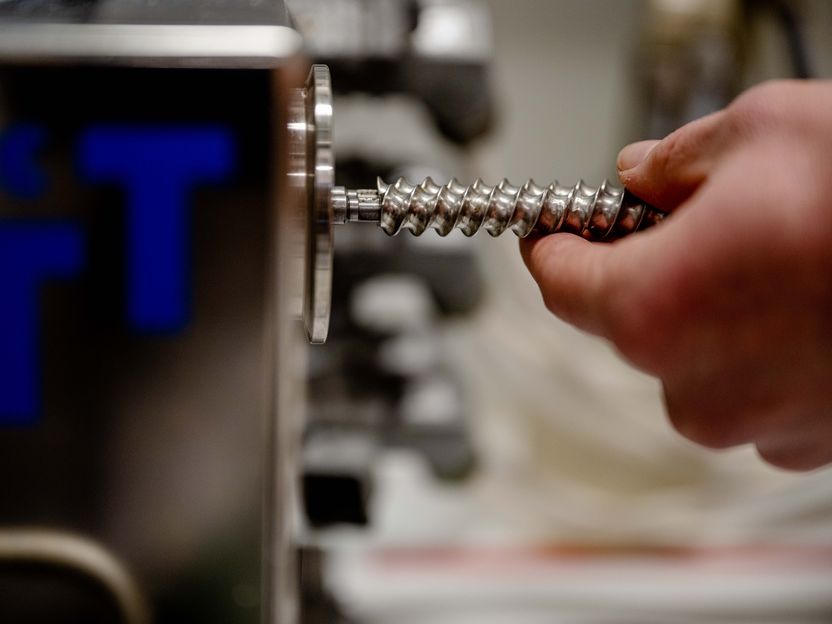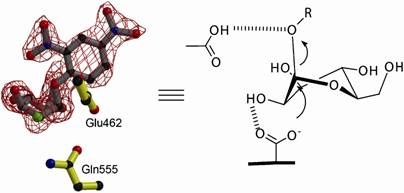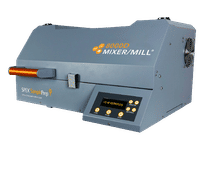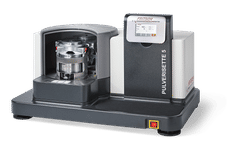Chemical reactions completely without waste
Mechanically driven reactions run completely without solvents: this sustainable process is now to be ready for the market
If reactions for the chemical industry were to take place without solvents, an enormous amount of environmentally harmful or even toxic waste could be saved. Prof. Dr. Lars Borchardt has shown how this can be done: Together with his team, he realizes mechanically driven reactions in catalytically coated ball mills. To make this so-called direct mechanocatalysis marketable, it has to work on a large scale and continuously. For his work on this, the chemist from Ruhr University Bochum has received a Proof of Concept Grant from the European Research Council ERC. The project, called "MechanoExtrusion," will be funded with 150,000 euros for 18 months.

In so-called extruders, the reactions are to take place entirely without harmful solvents.
© RUB, Marquard
Not a drop of solvent
The chemical industry produces incredible amounts of waste. Solvents make up the bulk of it, many of them environmentally harmful or even toxic. Lars Borchardt's research group is developing synthesis concepts that not only reduce the use of solvents, but do without them altogether. "The concept is called mechanochemistry and is based on carrying out reactions in ball mills - solvent-free, solely by having balls collide with each other, thereby transferring mechanical energy to the solid reactants and causing them to react," the researcher explains. "Not a drop of solvent is needed to do this, so the whole thing is green and sustainable."
In recent years, the team has gone one step further and coated balls and grinding vessels with catalytically active components. This eliminates the need to add catalyst powders or molecular catalyst compounds. "These components are difficult to separate and reuse again," Borchardt explains. Instead, the grinding tools themselves serve as catalytically active components.
Start-up aims to bring research to application
The researchers call this particularly sustainable process direct mechanocatalysis. It currently works on a laboratory scale. To be industrially applicable, it needs to run on a larger scale and continuously. "So the goal is to continuously fill reactants into a reactor, and the desired product is created in it just as continuously," says Lars Borchardt.
In his proof-of-concept project, the focus is on the so-called Suzuki coupling, one of the most important reactions in pharmaceutical chemistry. It is to take place in so-called extruders: a kind of meat grinder that can be continuously filled and ejects the desired product. The aim is to transfer direct mechanocatalysis from research to application. This is intended to create the framework conditions for a start-up.
Note: This article has been translated using a computer system without human intervention. LUMITOS offers these automatic translations to present a wider range of current news. Since this article has been translated with automatic translation, it is possible that it contains errors in vocabulary, syntax or grammar. The original article in German can be found here.
These products might interest you
Something is happening in the chemical industry ...
This is what true pioneering spirit looks like: Plenty of innovative start-ups are bringing fresh ideas, lifeblood and entrepreneurial spirit to change tomorrow's world for the better. Immerse yourself in the world of these young companies and take the opportunity to get in touch with the founders.
See the theme worlds for related content
Topic world Synthesis
Chemical synthesis is at the heart of modern chemistry and enables the targeted production of molecules with specific properties. By combining starting materials in defined reaction conditions, chemists can create a wide range of compounds, from simple molecules to complex active ingredients.

Topic world Synthesis
Chemical synthesis is at the heart of modern chemistry and enables the targeted production of molecules with specific properties. By combining starting materials in defined reaction conditions, chemists can create a wide range of compounds, from simple molecules to complex active ingredients.































































